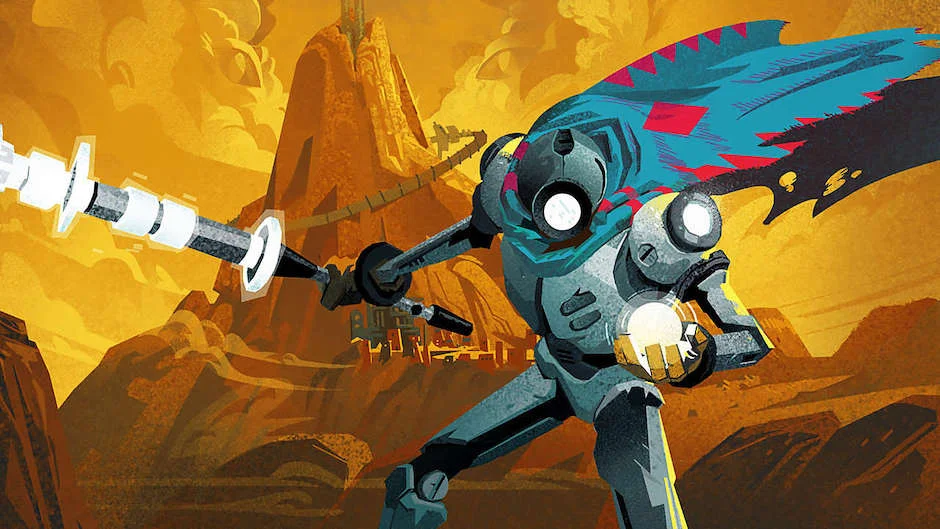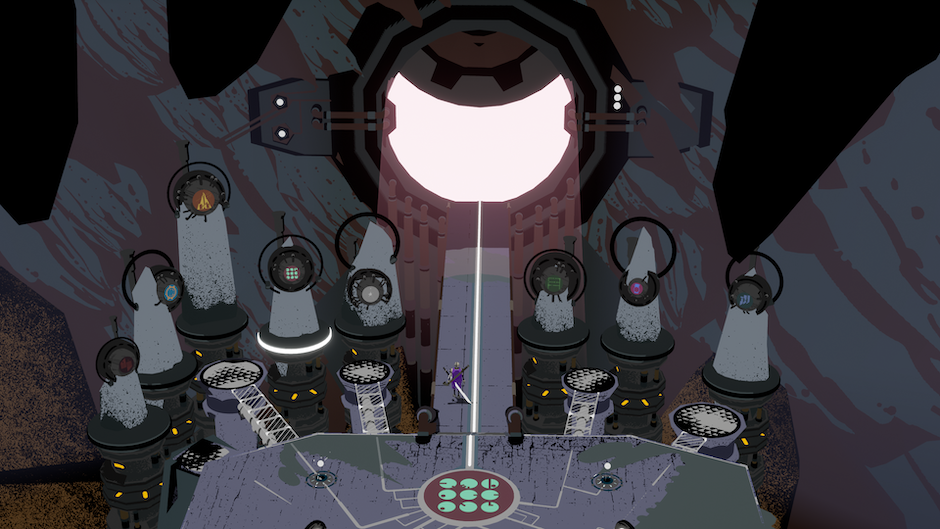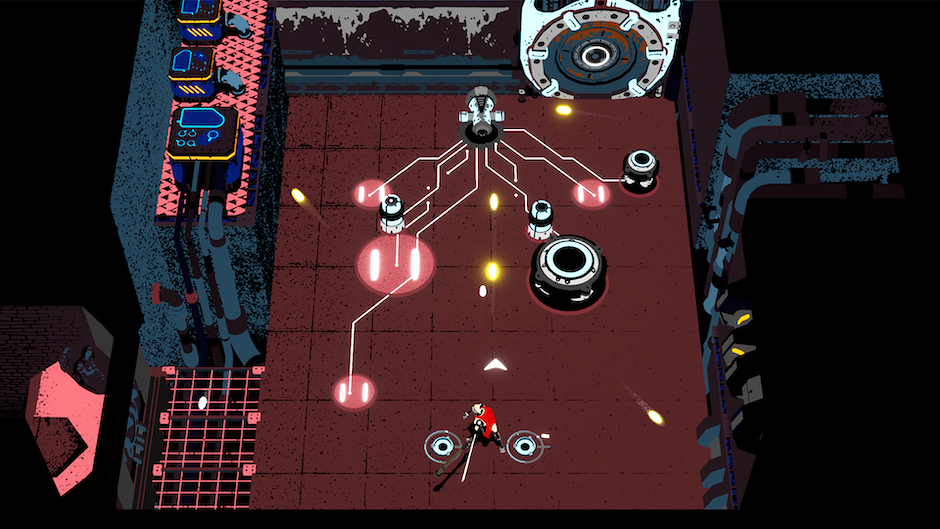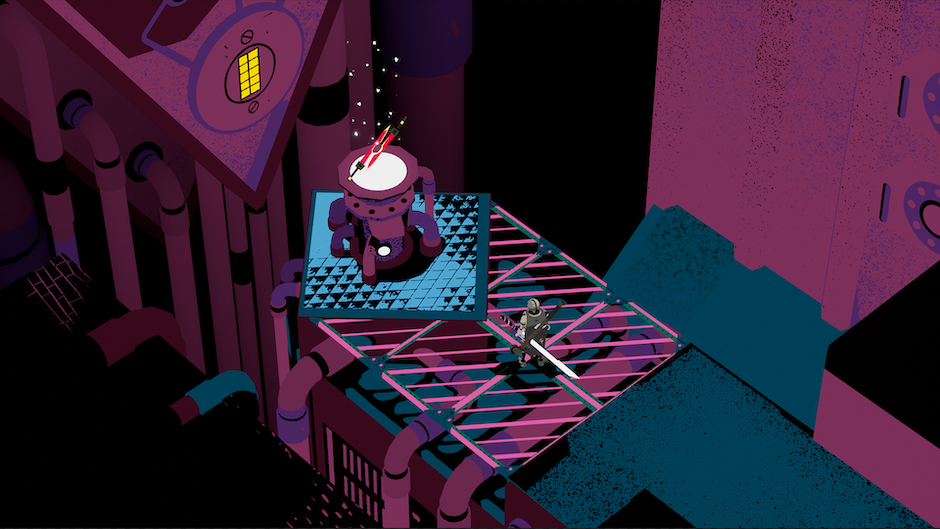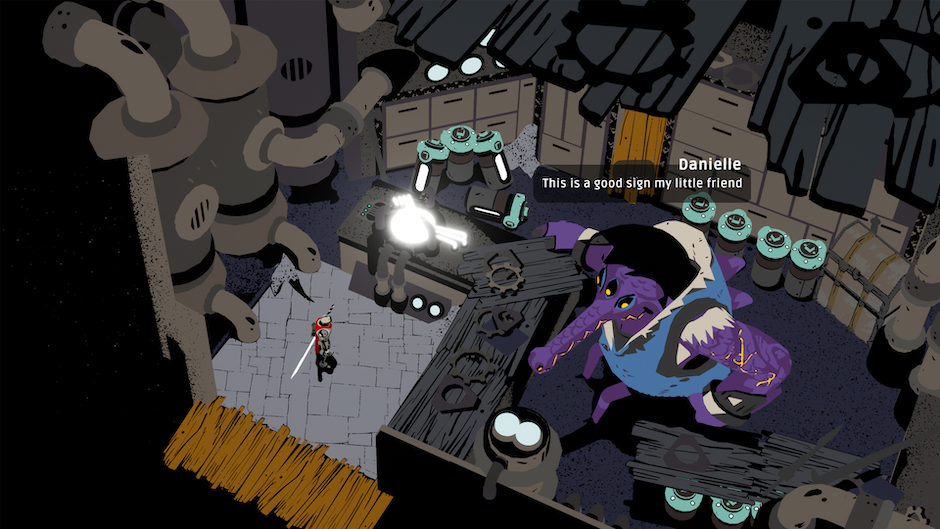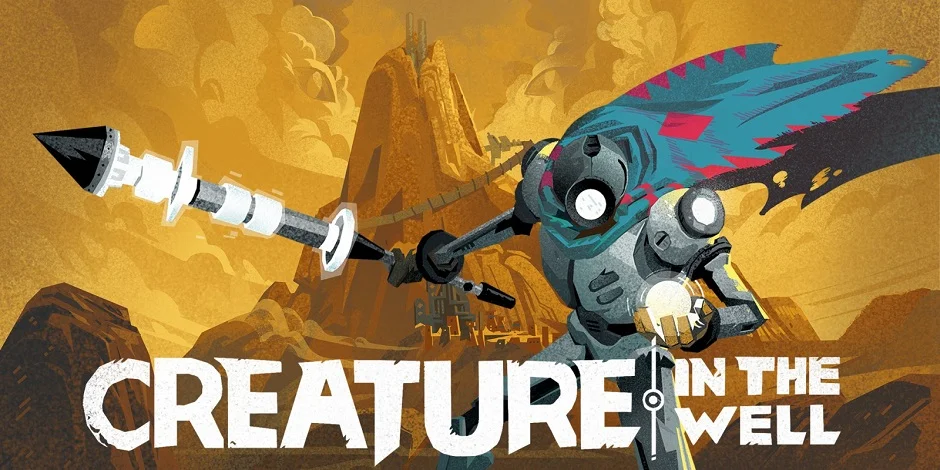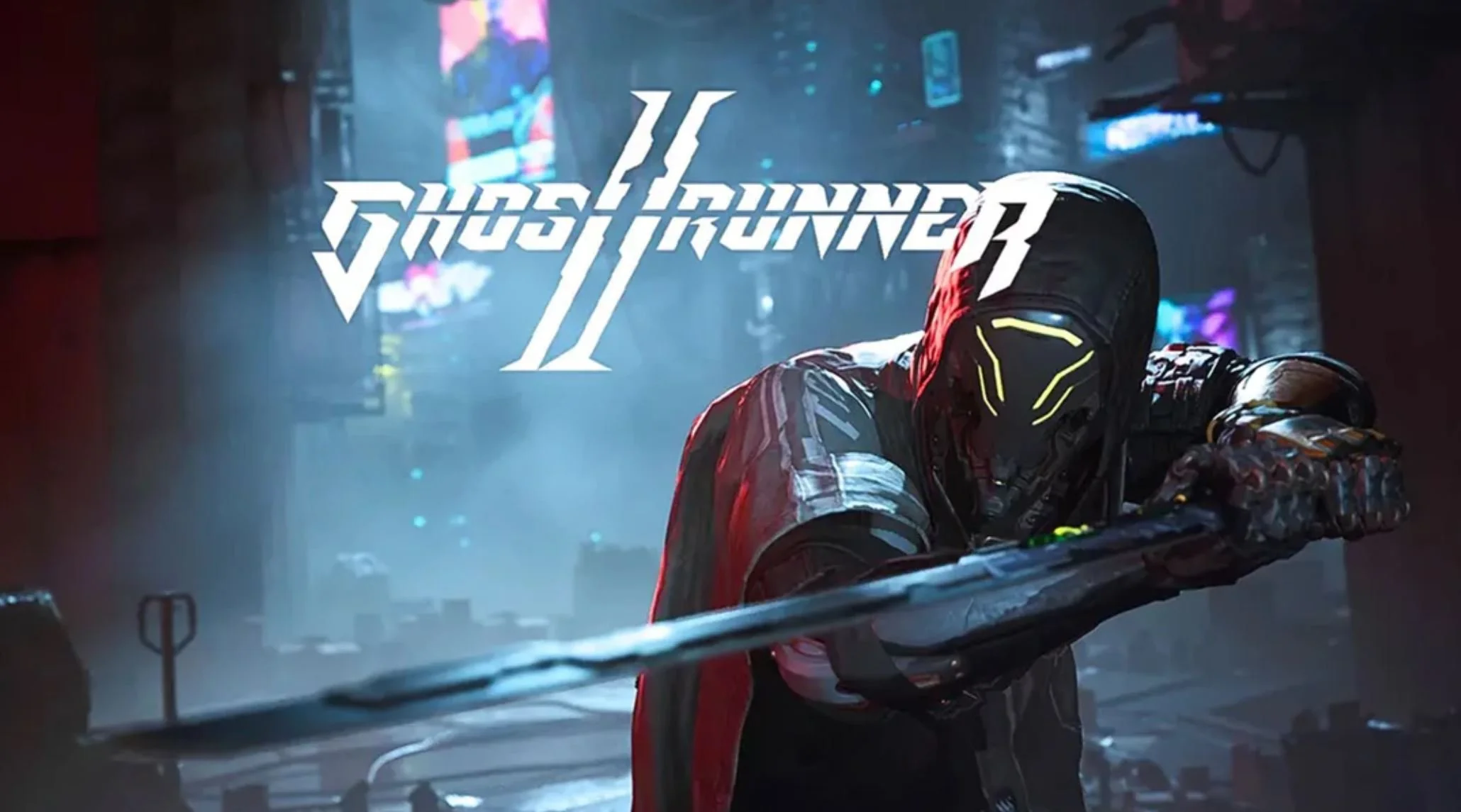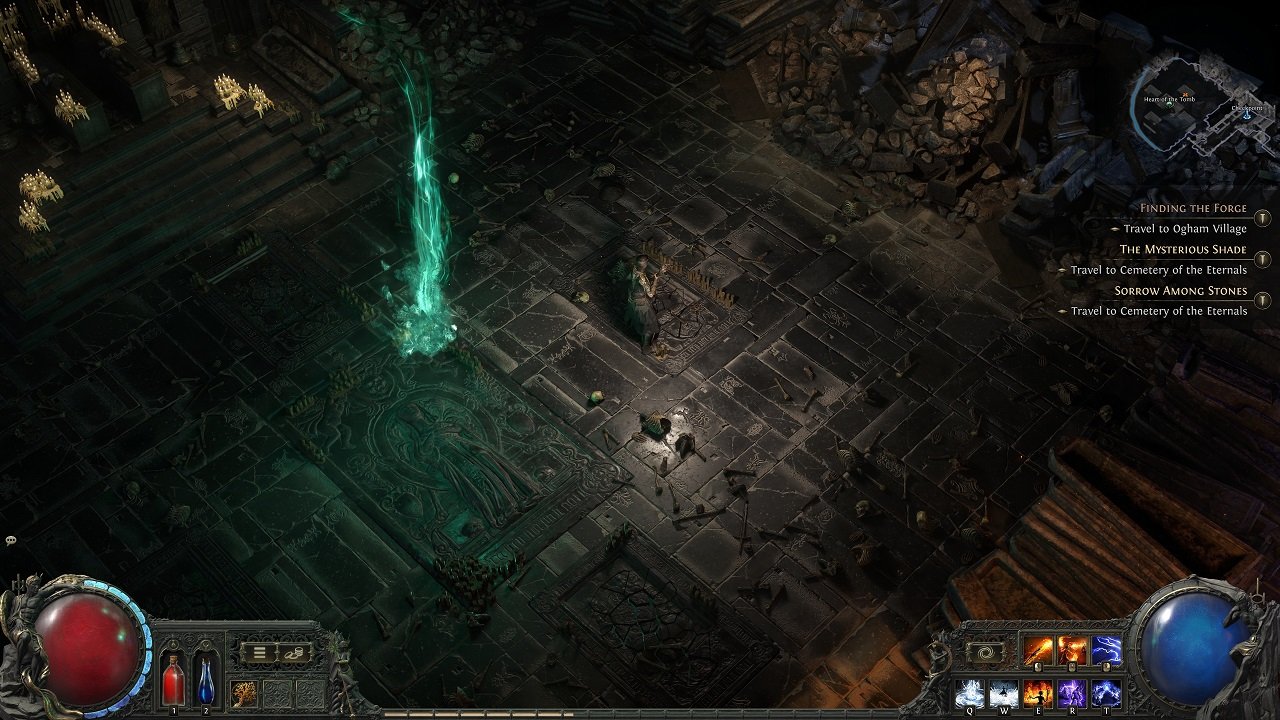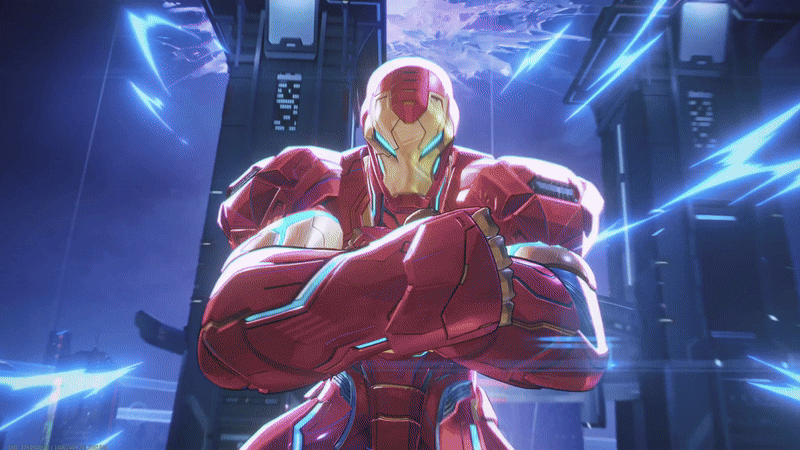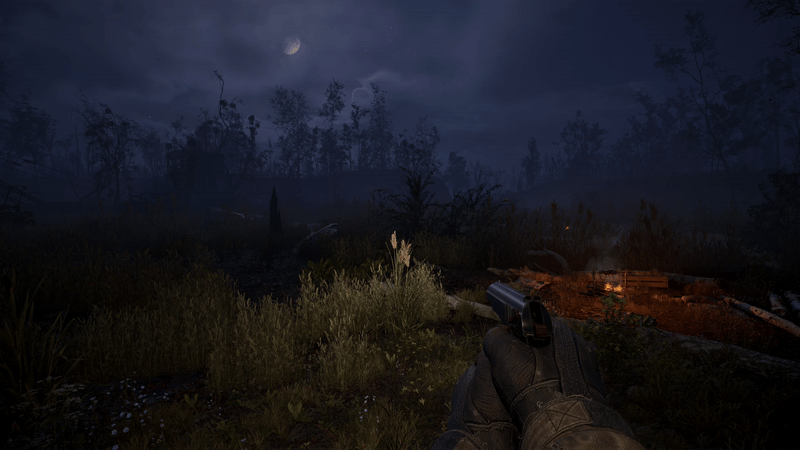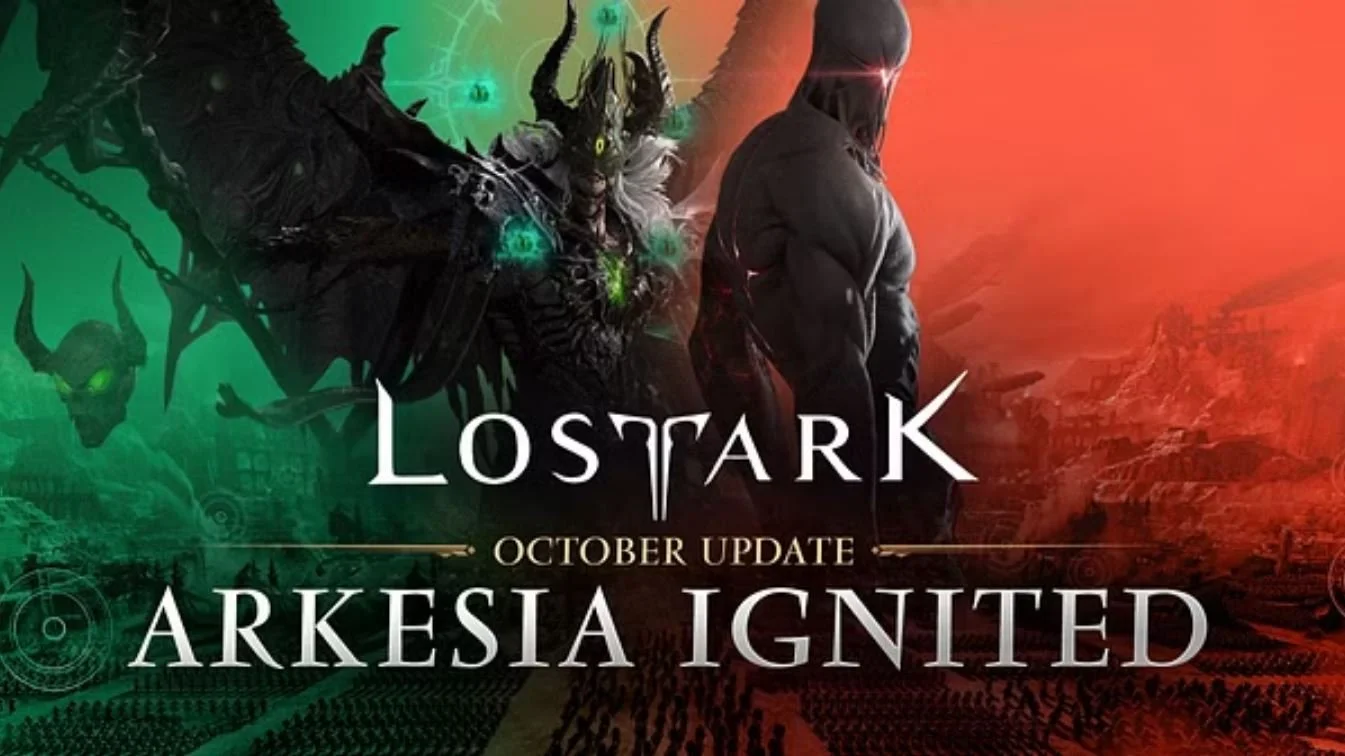Nintendo Switch code provided by Flight School Studio
Creature in the Well is a beautiful indie title from Adam Volker and Bohdon Sayre at Flight School Studio. The gorgeous adventure from the development duo draws in the eye as a sandstorm isolates the memorable little town of Mirage and the dark depths of the nearby mountain. The game is hard to define because it fuses a lot of elements into a new style that I’ve not encountered before. Hack-and-slash meets dungeon crawler in a story where the mechanics rely on pinball physics. Eight dungeons test your ability to charge and send out balls of energy into defunct bumpers and pylons. Creature in the Well is an anomaly that I was happy to slip into to while away the time. It’s an experience I’ll not likely to forget in a world that my eyes will definitely remember.
Story
The derelict weather machine never turned on, and the sandstorm that batters Mirage relentlessly shows no sign of stopping. The only hope of quelling the storm lies in restoring power to the machine in the mountain. As the last BOT-C engineer, you must venture alone into the Creature’s domain to finish the incomplete work. Your line of robotic mechanics was designed to construct and maintain the facility, and you’re the only one left. Combine the dogged spirit of WALL-E with the martial expertise of a samurai. That’s Creature in the Well for you. But the facility is in disrepair and it will take determination to turn back on the power. The Creature has left traps throughout the eight dungeons and the network of dormant nodes in the mountain require alacrity and precision to bring back to life. Thankfully, at least one denizen in Mirage will assist you. Danielle, the hybrid crocodile-dragon blacksmith will help you strengthen your energy core whenever you find the battered bodies of broken BOT-C engineers.
The narrative does break down in the beginning and again at the end. So little is told that I found myself wandering around Mirage for a while to see if there was any lingering exposition yet unearthed. I would have liked to learn more about the people of Mirage and the world outside of the sandstorm. Little tidbits are revealed upon successful completion of a dungeon, but the information divulged usually records the construction of the machine and the frequent attacks of the Creature. And the ending is rather abrupt. A quick montage of the resolving weather crisis before the screen dissolves to black. The story felt neglected in the midst of the pinball wizardry.
Gameplay
Ricocheting balls, spasming energy towers, automated turrets, and the nefarious machinations of a lurking Creature. The experience is a manic dash to dodge incoming attacks while sending charged balls careening off the walls. So, the pared down control scheme works well. It never feels like you’re juggling too many mechanics. The visual frenzy is complex enough. Three major buttons coordinate your movements and attacks. One for charging the power of the energy balls, as the dead machinery requires a certain energy level to turn back on. One for swinging the balls toward targets. And one for dashing short distances. But it’s all about charging and swinging. Even the dash works in the background. Most of the time, I found myself using it to quickly return to the action after dying.
Weapon upgrades, though, alter the method by which you engage the puzzles and traps in the mountain. Finding them along secret paths, they change and control the physics of your pinball-wielding hack-and-slash. When you discover a hidden area, it’s satisfying. I ended the game feeling like there were more spaces I had yet to unlock, and that gnawed at me. I’ll probably go back and explore the depths of the mountain again in order to open those remaining secrets.
As you delve deeper into the dark, there was a natural progression to the difficulty of the challenges but the BOT-C engineer gathers an arsenal of tools to appropriately meet those obstacles. Dungeons do a good job of expanding the puzzles and the work of restoring power. Time trials, far-off targets, homing projectiles, and the intervention of the Creature force you to continually adapt. Positioning becomes important. Switching between your tools in the middle of a fight. Studying the reasons behind your last death. All of these factors must be considered before you can develop a thorough approach to the task at hand. There are still times, however, when it feels that luck carries you through a room more than skill. The fortunate ricochet or a flurry of blows that happens to hit a needed target.
Visuals
Far and away the best part of Creature in the Well is the artwork. I was initially reminded of the indie hit Journey but the game gradually carved its own visual space with a striking color palette. It looks like you’re moving through the pages of a beautifully-drawn graphic novel. The lines are thick, and the environment pops out of the screen. It’s really pretty. Even though it would have been easy for me to take the game into other rooms with the handheld mode on the Switch, I didn’t want to take it away from my big TV screen. With how much I loved the graphics of Creature in the Well, I thought the dungeons could have done more to distinguish themselves from each other. The inner workings of the weather machine feel authentic, but I wished for a little more variety. Dungeons located in the desert but connected to the mountain could have added to the atmosphere. Or outside areas of the machine that rested atop the mountainside. Diversions from the norm would have been appreciated.
Replayability
There isn’t really content after the endgame other than revisiting the dungeons inside the mountain. If you missed any secrets or don’t have all of the weapon and BOT-C upgrades, that would provide a few more hours of play. One playthrough thoroughly covers what Creature in the Well has to offer. I envision stepping back in the world to rediscover the art and charm of the game. It isn’t a game to play for hours once you’ve completed the story, however.
What It Could Have Done Better
Creature in the Well is great, but small improvements could be made to elevate the experience. The world could have been expanded to introduce more dungeons, as the existing eight are confined to the mountain and therefore feel limiting. A more powerful narrative would have firmly convinced me of Mirage’s plight and the threat of the Creature. As it stands, I didn’t feel as connected to the characters. I think a stronger focus on the story would have added new locations for the BOT-C engineer to explore, and the emphasis on what’s happened gives incentive to stay in the world.
Verdict
Creature in the Well is the best pinbrawler you’ll find, and the riot of bouncing balls is a welcome diversion. While the story could use a boost and the boss battles sometimes feel repetitive, I guarantee that you’ll enjoy slamming energy orbs around the screen in a mad race to repower the weather machine and defeat the Creature. There aren’t endless hours of play, but there’s enough there to satisfy your pinball fantasies.
